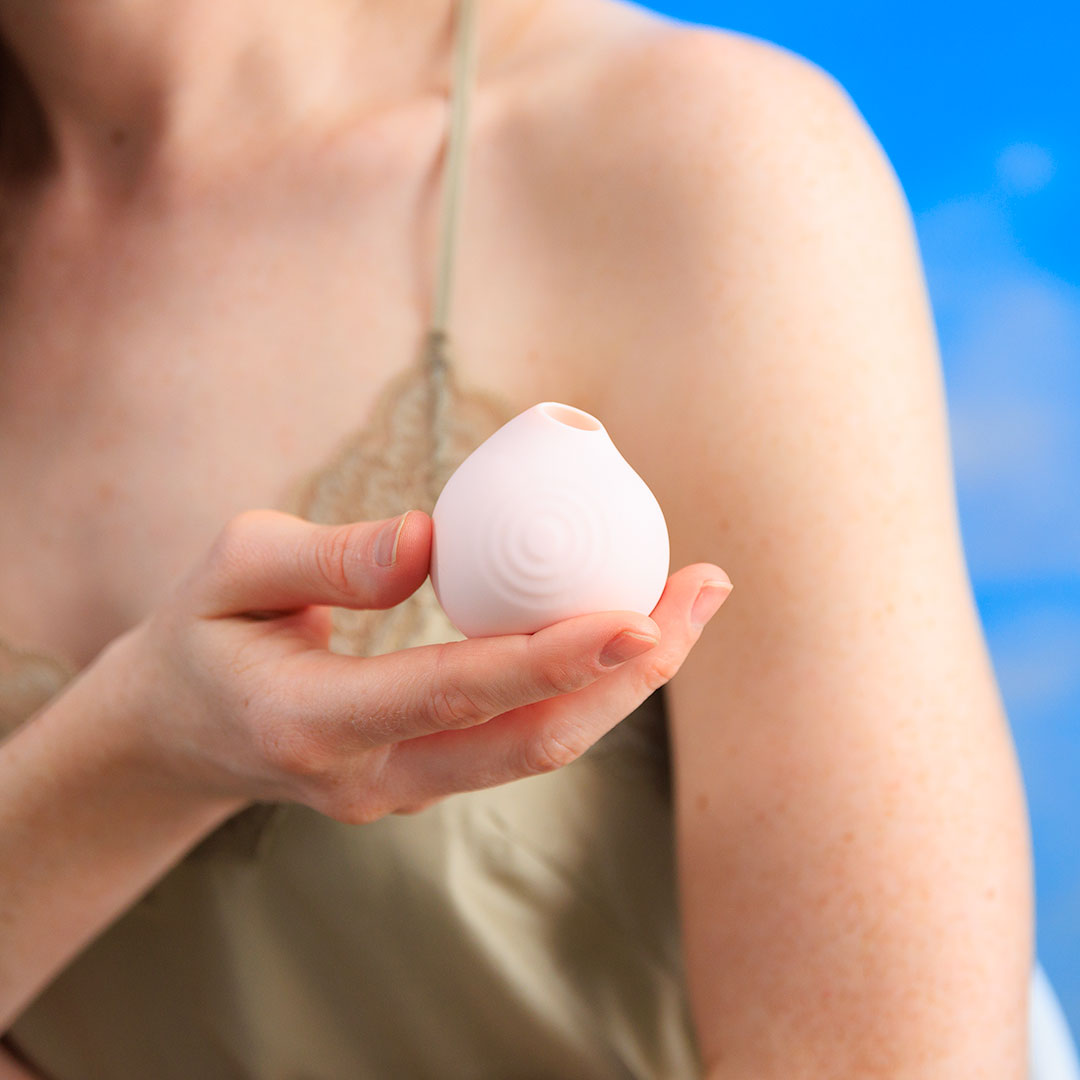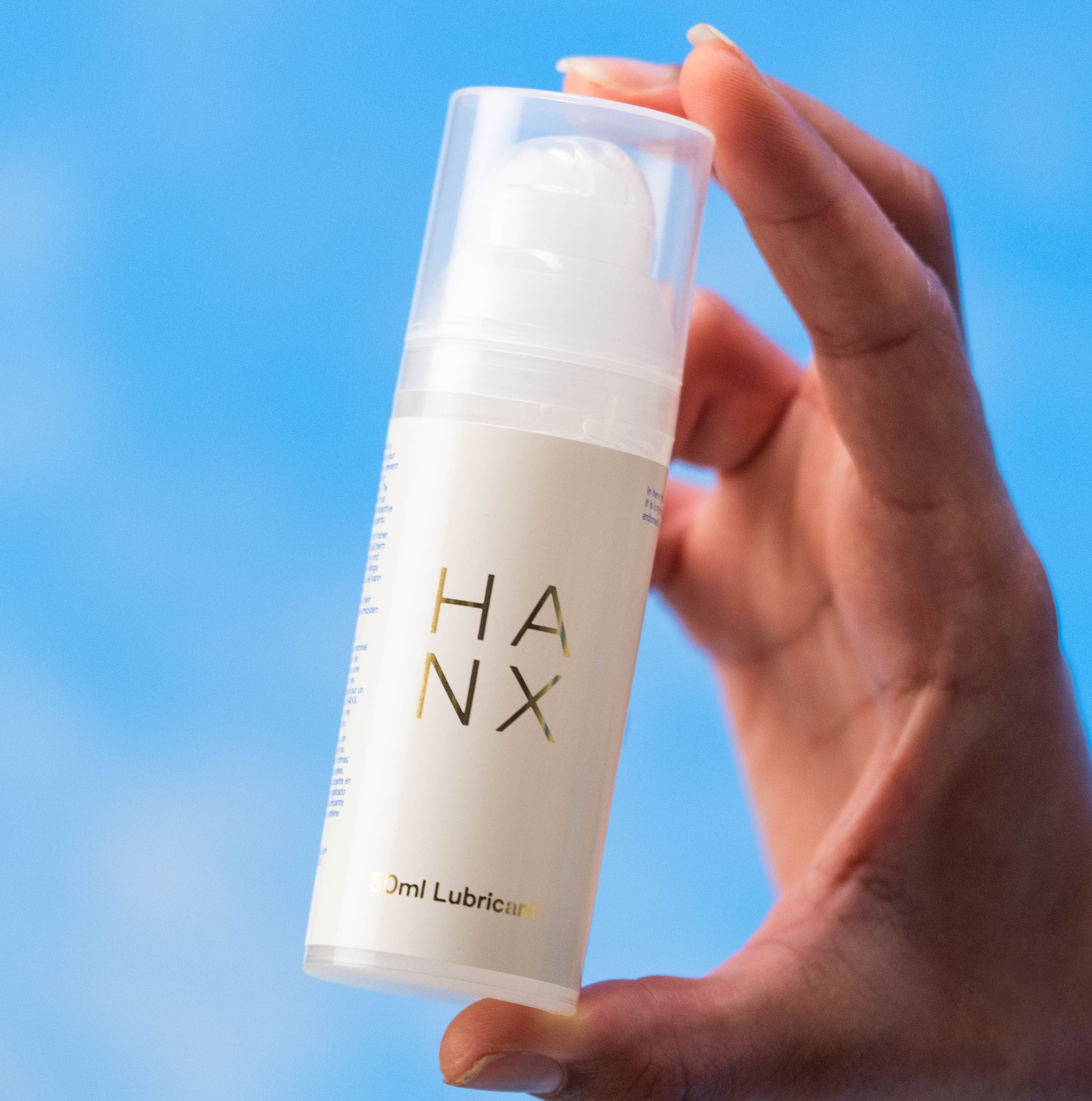The Hormone Rollercoaster: How Your Hormones Affect Your Libido
Ever wondered why your desire for sex seems to change as often as the weather in the UK? One minute you're feeling frisky, the next you'd rather organise your sock drawer. Don't worry – you're not alone, and there's some fascinating science behind these fluctuations. We spoke to Dr. Sarah Welsh, Gynae-expert and co-founder of HANX about the effect hormones can have on your desire.
The Science of Desire: Hormones and Your Libido
Your sex drive isn't just about meeting someone who makes your heart skip a beat – it's also about the complex chemical cocktail swirling inside your body. Whilst men work on a 24 hour hormonal cycle, women work on a 28 day cycle which may explain why our desire experiences more fluctuations. Let's break down the key players in your hormonal orchestra and how they conduct your desire.
Oestrogen: Your Libido's Best Friend
Oestrogen doesn't just regulate your menstrual cycle – it's also a major player in your sexual desire. When oestrogen levels are high (typically mid-cycle, around ovulation), many women experience:
-
Increased sensitivity in erogenous zones
-
Better natural lubrication
-
A general feeling of being more receptive to sexual advances
-
Higher levels of sexual confidence
"Oestrogen is crucial for maintaining the health of vaginal tissues, ensuring adequate lubrication, and supporting overall sexual function," says Dr. Sarah Welsh, "When oestrogen levels are balanced, women often report feeling more comfortable and confident in their sexuality."
Testosterone: Not Just for Men
Plot twist! Despite being known as the "male hormone," testosterone is actually essential for women's libido too. In fact, it might be the most important hormone for sexual desire across all genders. Testosterone helps:
-
Increase sexual thoughts and fantasies
-
Boost sensitivity in your clitoris and nipples
-
Enhance your sexual satisfaction
Women produce about one-tenth the amount of testosterone that men do, but that small amount packs a powerful punch when it comes to your sex drive.
Progesterone: The Libido Dampener
If oestrogen and testosterone are throwing a party for your libido, progesterone might be the neighbour calling the police to complain about the noise. This hormone rises after ovulation and during the second half of your cycle, and it can:
-
Decrease sexual desire
-
Make you feel more tired and less in the mood
-
Contribute to premenstrual symptoms that might make sex less appealing
This explains why you might feel less interested in sex in the week or so before your period arrives.
The Hormone Rollercoaster Throughout Your Life
Your hormones don't just fluctuate monthly – they change throughout your entire life, creating different patterns in your sexual desire.
Puberty and Early Adulthood
As puberty kicks in, oestrogen and testosterone levels rise, awakening sexual desire that wasn't there before. For many young women, this is when sexual thoughts and feelings become more prominent.
Your 20s and 30s
This is typically when hormone levels are at their most stable, though birth control can significantly alter this landscape.
"Many women don't realise that hormonal contraceptives can affect libido," explains Dr. Welsh. "The pill, for example, suppresses testosterone production, which can lead to decreased desire in some women. Everyone responds differently though, and finding the right contraceptive option is highly individual."
Pregnancy and Postpartum
Pregnancy brings a tsunami of hormonal changes. During the first trimester, high progesterone and morning sickness might send your libido into hibernation. The second trimester often brings increased blood flow to the pelvic area and higher testosterone, potentially boosting desire.
After giving birth, oestrogen and testosterone levels drop dramatically while prolactin (the breastfeeding hormone) rises, often resulting in decreased vaginal lubrication and less interest in sex. Add sleep deprivation to the mix, and it's no wonder many new moms put sex on the back burner.
Perimenopause and Menopause
As you approach menopause, hormone levels begin to fluctuate wildly before eventually declining. Oestrogen decreases, which can lead to vaginal dryness and discomfort during sex. Testosterone levels also gradually decline with age.
"During perimenopause and menopause, many women experience changes in sexual desire and function that can be challenging," says Dr. Welsh. "But it's important to know that this doesn't mean the end of your sex life. There are many strategies and treatments available to help maintain sexual wellness during this transition."
Beyond Hormones: Other Factors Affecting Your Desire
While hormones play a starring role in your libido story, they're not the only characters on stage. Your desire is also influenced by:
-
Stress levels: Cortisol (the stress hormone) is basically kryptonite for your sex drive
-
Sleep quality: Poor sleep means poor sex drive
-
Relationship satisfaction: Emotional connection affects physical desire
-
Mental health: Depression and anxiety can significantly lower libido
-
Medications: Many common medications have sexual side effects
Listen to Your Body: Tips for Working With Your Hormones
Instead of fighting your hormonal patterns, why not work with them? Here are some strategies:
-
Track your cycle: Notice patterns in your desire throughout the month
-
Plan accordingly: Take advantage of high-libido days for special intimate time
-
Communicate: Talk to your partner about how your desire naturally ebbs and flows
-
Prioritise pleasure: Focus on what feels good rather than performance
-
Get checked: If you experience sudden or significant changes in libido, talk to a healthcare provider
"Understanding your unique hormonal patterns can be incredibly empowering," Dr. Welsh advises. "When women recognise that fluctuations in desire are normal and natural, it often reduces anxiety around sex and actually enhances overall sexual satisfaction."
When to Seek Help
While fluctuations in libido are completely normal, sometimes hormone imbalances require professional attention. Consider speaking with a healthcare provider if you experience:
-
Sudden, dramatic loss of sexual desire
-
Pain during sex that wasn't present before
-
Severe mood swings correlating with your cycle
-
Irregular periods or other menstrual changes
-
Other symptoms like fatigue, weight changes, or hair loss
Remember, there's no "normal" level of desire – what matters is what feels right for you and whether changes in your libido are causing distress.
Your desire will naturally ebb and flow throughout your life. By understanding the hormonal forces at play, you can develop a healthier relationship with your sexuality and enjoy the ride – wherever your hormones may take you.
Want More?
-
Try our all-natural, desire-boosting supplement Libido Lift. Created with scientifically backed adaptogens and botanics that help you get in the mood.
-
Feeling stressed? Read our guide on how to boost your libido when life gets too much.
- So, how does our supplement increase female libido? Read everything you need to know about Libido Lift.






















